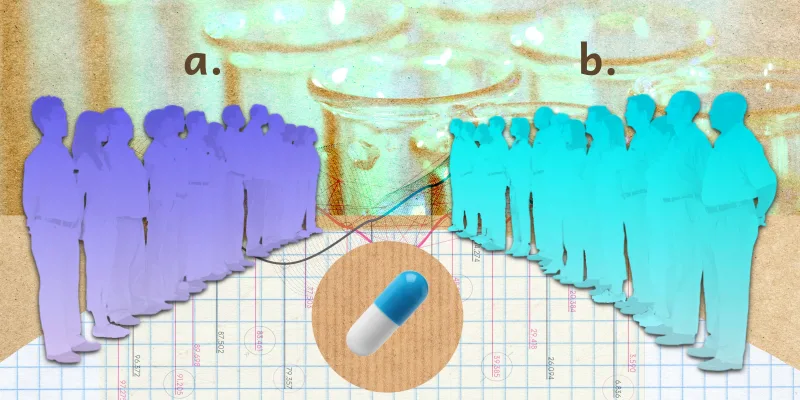You survived your 20-, 30- or 40-year career in medicine and now have enough money to retire. Congratulations! Your consistent saving and savvy investing has finally paid off. But is your work now done? Not at all!
Retirement isn’t the finish line for your finances. It is the starting line for the rest of your life and is still full of all kinds of financial nuances and traps. As in earlier stages of life, it is critical that you create a sound financial plan in retirement to ensure that your resources will last for the remainder of your life and to provide for your loved ones beyond your death. Remember, if you are healthy, this phase may last for decades!
As you approach those golden years, here are some important things to consider:
1) Why are you retiring in the first place?
Like beginning your career, getting married, or having children, retirement is a major life transition. Are you ready for it — not just financially, but mentally? As a physician, you have spent decades in charge, respected, and expected to solve problems and save lives. Being a physician is part of your identity and may even be your major source of social interaction. How are you going to feel when no one calls you doctor anymore, no one comes to you for help, or your colleagues start forgetting to include you in their social outings? For some, leaving all of that behind and finally having time to focus on themselves and their family is liberating. But for others, it can be isolating and disempowering. So, before you take that leap, be sure that you are prepared for it.
Ask yourself the question: Am I retiring away from something or am I retiring into something? In other words, are you so tired of your job that you can’t wait to be done but haven’t given any thought to what is next for you in life? Without advanced planning, you might find yourself bored and unfulfilled and even wishing that you hadn’t given it up so soon.
Then again, if you are intentional about your next steps — maybe lots of travel, time with family, volunteer work, cultivating hobbies, or even a second part-time career — this phase of life can be extremely rewarding.
If you aren’t sure you are ready, you don’t have to retire all at once. Maybe explore part-time or locum tenens work, or look at non-clinical, advisory, or teaching opportunities. There are many ways to slow down without giving medicine up altogether. If work fulfills you, you don’t have to stop working just because you can. You might find that you enjoy being a physician a lot more when it is optional.
2) If you are going to retire early, how are you going to access your money?
If you reach early financial independence and are mentally ready to retire from medicine, there are some practical considerations to keep in mind. First, the IRS does not allow you to access the money in your pre-tax retirement accounts (i.e., 401k, 403b, SEP-IRA, traditional IRA) without a 10% penalty before the age of 59.5 (with a few exceptions). There are also some rules and time limits for distributions from a Roth IRA that could end up costing you money if you aren’t aware of them. So, if you are retiring before then, what are your options?
1) Use a taxable account: This money is available to you at any time but the interest and dividends (ordinary income) and asset appreciation on sale (capital gains) are taxed.
2) Series of substantially equal periodic payments (SEPPs) under Section 72t. These are predesignated annual retirement account distributions that are penalty-free but must continue for five years or when you turn age 59.5, whichever occurs later. That means if you start at age 52, you must continue it until age 59.5 (seven and a half years). If you start at age 57, you must do it until age 62 (five years). The IRS provides a few different formulas for you to calculate the payment, available on IRS.gov.
3) The Rule of 55. If you separate from your current employer after age 55, you can access your workplace retirement account from that employer without penalty as long as it stays in their account and is not rolled over. Check with your company plan to see if they allow it.
4) 457(b) plans. These allow distributions without penalty at any age. If yours is a private plan, the distribution rules may differ, so check with your employer.
3) Be aware of RMDs.
An RMD is the acronym for a required minimum distribution that the IRS requires you start taking each year from your tax-deferred retirement accounts starting at age 73. This is so the government can collect its taxes at your ordinary income rate on that money. The IRS provides a formula about how much you must take, and if you screw it up, the penalties are steep (25%). If you have a large retirement account, this income can bump you back into higher tax brackets.
4) Roth conversions are key.
There are some great tax advantages to having money in Roth accounts. The main one is that since they are funded with after-tax dollars, you never have to pay taxes on them again, including the asset growth and the distributions. Plus, there are no RMDs — you can leave money in there for as long as you want. And, if you have money left over that your beneficiaries inherit, it is tax-free to them as well.
After retirement and before social security and RMDs kick in, you are likely going to be in a much lower tax bracket than you have been in a long time. You can pay the taxes at that lower rate on money in your tax-deferred accounts and roll them into a Roth account and be done with all future taxes. And less money in pre-tax accounts means smaller RMDs and lower tax brackets. That move can save you millions in tax dollars over a lifetime.
5) Shore up your estate plan.
Although estate planning is important at every stage of life, it becomes even more of a reality in retirement as you begin facing your own mortality. Be sure that you have the basics done — a will, a living will, a health care proxy, a durable power of attorney — and that all your beneficiaries on your account are updated to who you want to inherit the assets (don’t accidentally leave it to your ex-spouse)! If you have a lot of assets, consider meeting with an estate planner to look at various trust options to protect your assets against estate tax, creditors, or probate.
In conclusion, retirement should be a time of freedom, fulfillment, and peace of mind — but achieving that vision takes intentional, ongoing planning. Being deliberate with your money in this stage as well can help guarantee the lifestyle that you have envisioned, protect your legacy, and enable you to adapt to whatever comes next.
How are you preparing (financially and emotionally) for retirement? Share in the comments.
Bryan Jepson MD, CFP, ChSNC is a semi-retired emergency medicine physician and full-time financial planner at www.targetedwealthsolutions.com who specializes in physicians and special needs families. He is the author of “The Physician’s Path to True Wealth: 12 Steps to Gaining Control Over Your Money and Your Time,” available on Amazon. He has more financial content at www.bryanjepson.com.
Image by Moor Studio / Getty Images






